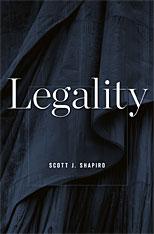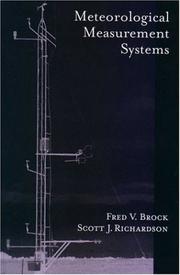| Listing 1 - 10 of 26 | << page >> |
Sort by
|
Book
ISBN: 9780226368702 022636870X 9780226368672 022636867X Year: 2016 Publisher: Chicago London
Abstract | Keywords | Export | Availability | Bookmark
 Loading...
Loading...Choose an application
- Reference Manager
- EndNote
- RefWorks (Direct export to RefWorks)
Historians of religion have examined at length the Protestant Reformation and the liberal idea of the self-governing individual that arose from it. In Spiritual Despots, J. Barton Scott reveals an unexamined piece of this story: how Protestant technologies of asceticism became entangled with Hindu spiritual practices to create an ideal of the "self-ruling subject" crucial to both nineteenth-century reform culture and early twentieth-century anticolonialism in India. Scott uses the quaint term "priestcraft" to track anticlerical polemics that vilified religious hierarchy, celebrated the individual, and endeavored to reform human subjects by freeing them from external religious influence. By drawing on English, Hindi, and Gujarati reformist writings, Scott provides a panoramic view of precisely how the specter of the crafty priest transformed religion and politics in India. Through this alternative genealogy of the self-ruling subject, Spiritual Despots demonstrates that Hindu reform movements cannot be understood solely within the precolonial tradition, but rather need to be read alongside other movements of their period. The book's focus moves fluidly between Britain and India-engaging thinkers such as James Mill, Keshub Chunder Sen, Max Weber, Karsandas Mulji, Helena Blavatsky, M. K. Gandhi, and others-to show how colonial Hinduism shaped major modern discourses about the self. Throughout, Scott sheds much-needed light how the rhetoric of priestcraft and practices of worldly asceticism played a crucial role in creating a new moral and political order for twentieth-century India and demonstrates the importance of viewing the emergence of secularism through the colonial encounter.
Hinduism --- Hindu renewal --- Anti-clericalism --- Church and state --- Clergy --- Clericalism --- Hindu reform --- Reform of Hinduism --- Renewal of Hinduism --- Religions --- Brahmanism --- History --- Reform --- Renewal --- E-books --- Hinduism - India - History --- hinduism, self rule, independence, protestant reformation, self-governing, individual, asceticism, hindu, spirituality, religion, christianity, subject, reform, politics, control, authority, anticolonialism, priestcraft, priest, india, secularism, colonialism, gandhi, helena blavatsky, karsandas mulji, max weber, keshub chunder sen, james mill, despotism, ethics, nonfiction.

ISBN: 0674058917 9780674058910 9780674055667 0674055667 067426729X Year: 2011 Publisher: Cambridge, Mass. The Belknap Press of Harvard University Press
Abstract | Keywords | Export | Availability | Bookmark
 Loading...
Loading...Choose an application
- Reference Manager
- EndNote
- RefWorks (Direct export to RefWorks)
Legality is a profound work in analytical jurisprudence, the branch of legal philosophy which deals with metaphysical questions about the law. In the twentieth century, there have been two major approaches to the nature of law. The first and most prominent is legal positivism, which draws a sharp distinction between law as it is and law as it might be or ought to be. The second are theories that view law as embedded in a moral framework. Scott Shapiro is a positivist, but one who tries to bridge the differences between the two approaches. In Legality, he shows how law can be thought of as a set of plans to achieve complex human goals. His new “planning” theory of law is a way to solve the “possibility problem”, which is the problem of how law can be authoritative without referring to higher laws.
Jurisprudence. --- Law --- Legal positivism. --- Legal neopositivism --- Neopositivism in law --- Jurisprudence --- Positivism --- Philosophy. --- Philosophy --- Legal positivism --- Legal theory and methods. Philosophy of law --- Droit --- Règle de droit --- Principes généraux du droit --- Philosophie --- Sources --- Règle de droit --- Principes généraux du droit
Book
ISBN: 1611221226 9781611221220 9781617618178 1617618179 Year: 2011 Publisher: New York
Abstract | Keywords | Export | Availability | Bookmark
 Loading...
Loading...Choose an application
- Reference Manager
- EndNote
- RefWorks (Direct export to RefWorks)
Nanoparticles --- Nanostructured materials --- Nanotechnology --- Nanomaterials --- Nanometer materials --- Nanophase materials --- Nanostructure controlled materials --- Nanostructure materials --- Ultra-fine microstructure materials --- Microstructure --- Nano-particles --- NPs (Nanoparticles) --- Particles --- Molecular technology --- Nanoscale technology --- High technology --- Environmental aspects. --- Toxicology. --- Health aspects. --- Government policy --- Nanoscale particles
Book
ISBN: 1107357276 1107348781 1107343909 1107347653 1107345154 110734140X 1139021834 9781107341401 9781139021838 9781107004375 1107004373 9781316600122 1107352274 1316600122 Year: 2014 Publisher: Cambridge Cambridge University Press
Abstract | Keywords | Export | Availability | Bookmark
 Loading...
Loading...Choose an application
- Reference Manager
- EndNote
- RefWorks (Direct export to RefWorks)
This book presents a framework to reconceptualize internet governance and better manage cyber attacks. It examines the potential of polycentric regulation to increase accountability through bottom-up action. It also provides a synthesis of the current state of cybersecurity research, bringing features of cyber attacks to light and comparing and contrasting the threat to all relevant stakeholders. Throughout the book, cybersecurity is treated holistically, covering issues in law, science, economics and politics. This interdisciplinary approach is an exemplar of how strategies from different disciplines as well as the private and public sectors may cross-pollinate to enhance cybersecurity. Case studies and examples illustrate what is at stake and identify best practices. The book discusses technical issues of Internet governance and cybersecurity while presenting the material in an informal, straightforward manner. The book is designed to inform readers about the interplay of Internet governance and cybersecurity and the potential of polycentric regulation to help foster cyber peace.
Information warfare (International law) --- Cyberspace --- Cyberterrorism. --- Computer crimes. --- Computer networks --- Computer network security --- Network security, Computer --- Security of computer networks --- Computer security --- Computers and crime --- Cyber crimes --- Cybercrimes --- Electronic crimes (Computer crimes) --- Internet crimes --- Crime --- Privacy, Right of --- Attacks on computers --- Computer attacks --- Cyber attacks --- Cyber terrorism --- Cyber war --- Cyberwarfare --- Electronic terrorism (Cyberterrorism) --- Computer crimes --- Terrorism --- Space and time --- Computers --- Telematics --- International law --- Security measures. --- Security systems
Book
ISBN: 1315511339 1315511312 1315511320 9781315511313 9781315511320 9781315511337 9781138699892 1138699896 Year: 2017 Publisher: Abingdon, Oxon
Abstract | Keywords | Export | Availability | Bookmark
 Loading...
Loading...Choose an application
- Reference Manager
- EndNote
- RefWorks (Direct export to RefWorks)
Science --- History. --- Descartes, René,
Book
ISBN: 1474488196 1399518682 1474488188 9781474488181 1474488161 9781474488167 9781474488198 Year: 2022 Publisher: Edinburgh
Abstract | Keywords | Export | Availability | Bookmark
 Loading...
Loading...Choose an application
- Reference Manager
- EndNote
- RefWorks (Direct export to RefWorks)
Builds a theoretical model of tribe-state relations through historical political analysis of tribal politics in Kuwait, Qatar, and Oman.
Tribes --- Government policy --- Arabian Peninsula --- Politics and government.
Book
ISBN: 1622577639 9781622577637 9781622577620 1622577620 Year: 2013 Publisher: New York
Abstract | Keywords | Export | Availability | Bookmark
 Loading...
Loading...Choose an application
- Reference Manager
- EndNote
- RefWorks (Direct export to RefWorks)
Book
ISBN: 0822977419 0822961725 9780822977414 1306555442 9781306555449 9780822961727 Year: 2012 Publisher: Pittsburgh, Pa. University of Pittsburgh Press
Abstract | Keywords | Export | Availability | Bookmark
 Loading...
Loading...Choose an application
- Reference Manager
- EndNote
- RefWorks (Direct export to RefWorks)
Communication in economic development --- Economic development --- Globalization --- Rhetoric --- Rhetorical criticism. --- Social aspects. --- Speech criticism --- Language and languages --- Speaking --- Criticism --- Oratory --- Public speaking --- Authorship --- Expression --- Literary style --- Rhetorical criticism --- Social aspects --- E-books

ISBN: 0197561586 1280834196 9786610834198 0198030746 1601198973 9780198030744 0195134516 9780195134513 0195134516 9780195134513 0190285451 Year: 2001 Publisher: New York : Oxford University Press,
Abstract | Keywords | Export | Availability | Bookmark
 Loading...
Loading...Choose an application
- Reference Manager
- EndNote
- RefWorks (Direct export to RefWorks)
'Meteorological Measurement Systems' treats instrumentation used in meteorological surface systems, both on the synoptic scale and the mesoscale, and the instrumentation used in upper air soundings. The text includes material on first- and second-order differential equations as applied to instrument dynamic performance, and required solutions are developed.
Meteorological instruments. --- Meteorology. --- Aerology --- Atmospheric science --- Instruments, Meteorological --- Physical instruments --- Geophysical instruments --- Meteorological instruments --- meteorological stations --- weather data --- Barometers --- Hygrometers --- Rain gauges --- Anemometers --- Thermometers --- Insolation --- Visibility --- surveying --- atmospheric data
Book
ISBN: 194557738X 9781945577383 Year: 2018 Publisher: Dayton, Ohio
Abstract | Keywords | Export | Availability | Bookmark
 Loading...
Loading...Choose an application
- Reference Manager
- EndNote
- RefWorks (Direct export to RefWorks)
When it comes to the task of making democracy work as it should in everyday ways and places, professionals who are employed by institutions of many kinds can be a problem. All too often, they use their technical knowledge and expertise in ways that dominate, disable, and sideline neighborhood and community members who aren't employed as credentialed experts. Or they stay out of public work in the messy, contentious realm of civic life altogether because they see it as an inappropriate activity for professionals to engage in, they don't know what to do, they aren't welcome, or they are afraid of losing their jobs. Through eight richly detailed oral histories, this book helps to open our imagination to the possibilities for professionals to make constructive contributions to the task of making democracy work as it should. The firsthand stories of public work in these oral histories are told by professionals from six different states who either chose or were invited to jump into civic life as active participants. They help us see what it means and takes to be a "citizen professional" who respects and supports the capacities, intelligence, expertise, and agency of others. The book's editors are Scott J. Peters, professor in the Department of Development Sociology at Cornell University; Theodore R. Alter, professor of agricultural, environmental, and regional economics and codirector of the Center for Economic and Community Development at Penn State; and Timothy J. Shaffer, assistant professor in the Department of Communication Studies and the assistant director of the Institute for Civic Discourse and Democracy at Kansas State University.
| Listing 1 - 10 of 26 | << page >> |
Sort by
|

 Search
Search Feedback
Feedback About UniCat
About UniCat  Help
Help News
News